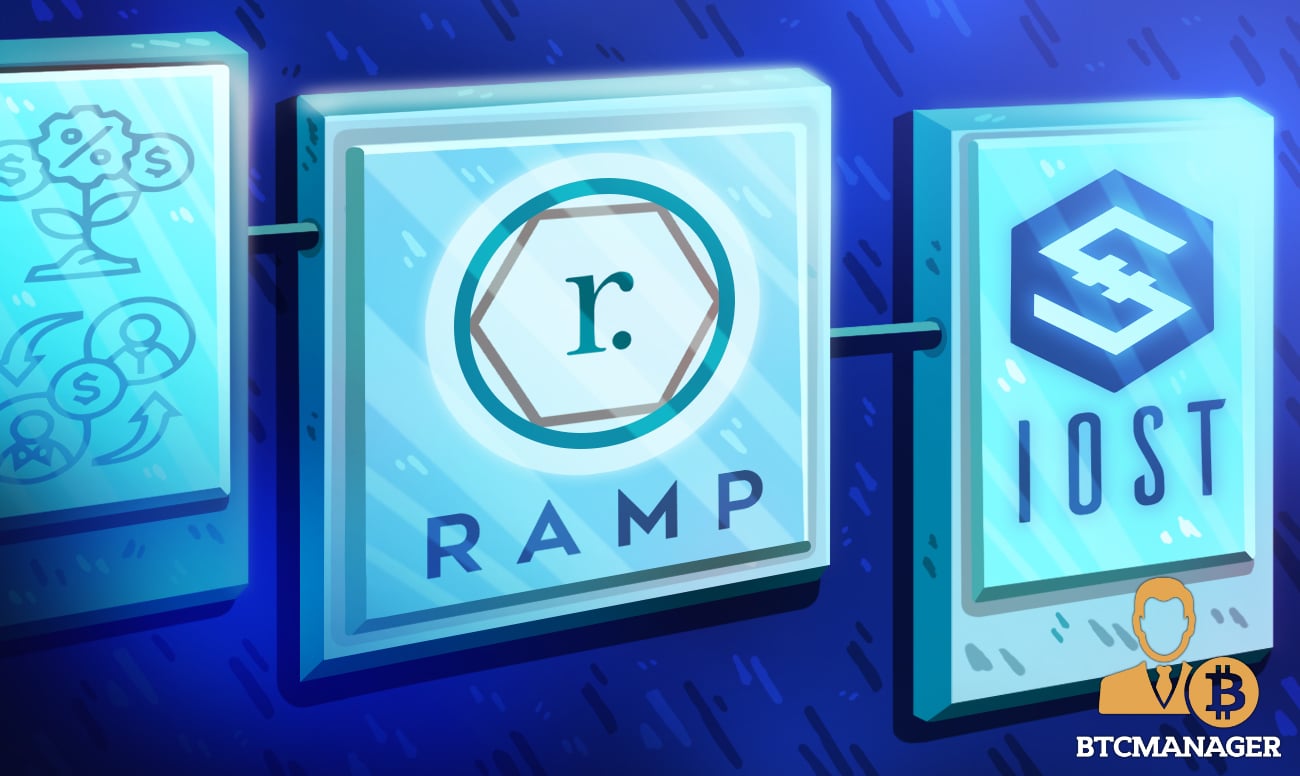IOST Allies with RAMP DeFi, Enabling IOST Holders to Unlock Liquid Capital While Retaining Staking Rewards

RAMP DEFI, a cross-chain liquidity ramp designed specifically to unlock funds from staked assets, is now part of IOST’s Noah Oracle Fund as per a press release on Aug 26. The $1 million fund is meant to bootstrap growth of DeFi oracle projects in the enterprise-grade, scale, and secure IOST blockchain.
IOST and RAMP DEFI Partnership: Unlocking Staked Assets
Through the partnership, users can simultaneously unlock their stake and not lose their attractive IOST annual rewards.
This was a major pain point especially for non-ERC-20 projects whose assets were used to secure their respective blockchains through staking or, had to be held, waiting for capital gains which could take years—or even depreciate during that time.
RAMP DEFI opens up opportunities, allowing diversification by collateralizing a non-ERC 20 asset into an ERC-20 stablecoin, rUSD, via a gateway in Ethereum.
Conversely, holders of Ethereum tokens can deposit their holdings in RAMP’s eUSD liquidity pool and earn the eUSD stablecoin. It is this recycling of assets that provides a win-win scenario for token or coin holders of different blockchains.
Within IOST, users can now collateralize their IOST coin and mint a native stablecoin before converting it to an ERC-20 stablecoin via RAMP DEFI cross-chain protocol.
Accordingly, users will be free to participate in DeFi activities in Ethereum since they can borrow other stablecoins like DAI through simple ERC-20 token swaps.
Eyes on DeFi
IOST has made it clear, even updating their roadmap, indicating that H2 will be focused on open finance. A high potential — but experimental, open finance this far epitomizes the innovation in open source projects.
Though most are predominantly found in Ethereum, IOST is positioning itself as a suitable network for such demanding dApps. Its main value proposition is its scalable and feeless platform which is now turbocharged by a fund meant to bolster the development of financial applications on the enterprise-grade platform.
Noah Oracle Fund to Boost DeFi Development in IOST
The choice of RAMP DEFI highlights its potent. A selection criterion for joining requires the DeFi project to be outstanding with the ability to “foster the rapid growth of DeFi to drive more innovation, utility and adoption to IOST’s mainnet” while concurrently creating value as they become a home for explosive, robust, and top-tier DeFi dApps.
At this initial stage, the IOST Foundation will now support the DeFi project in the technical development of their smart contracts that control minting, staking, and liquidation functions. The aim is to ensure security, a net positive which will in turn boost use confidence in the larger IOST community.
Part of the statement also read that “both networks also have plans to undertake co-marketing campaigns and community programs to build a tight-knit community around IOST DeFi development.”
Xin Jin, the CTO of RAMP Protocol, said:
“Essentially, RAMP Protocol allows IOST holders to lock IOST into staking, and mint a stablecoin iUSD (over-collateralized), which can also be bridged to Ethereum and used to participate in more DeFi opportunities.”
Further adding;
“The collateralized IOST continues to receive staking rewards, and they can switch back into IOST anytime by closing their collateralized position and burning the iUSD. This way they can continue holding IOST, and use it to extract liquid capital at the same time.”
RAMP DEFI Public Sale
On Aug 23, the RAMP protocol private sale was over-subscribed as it managed to raise over $1 million from investors including IOST, Alameda Research, and XRP Capital.
The public sale is scheduled for Aug 29 where 10 million RAMP will be availed for whitelisted investors. Thereafter, the token will be listed on Uniswap, the most popular DEX in Ethereum.
RAMP also announced its partnership with Elrond, in a deal that will see eGLD holders access their solutions.
On Aug 25, BTCManager reported of IOST’s partnership with Aegis DeFi to improve scalability and promote privacy for users.
















